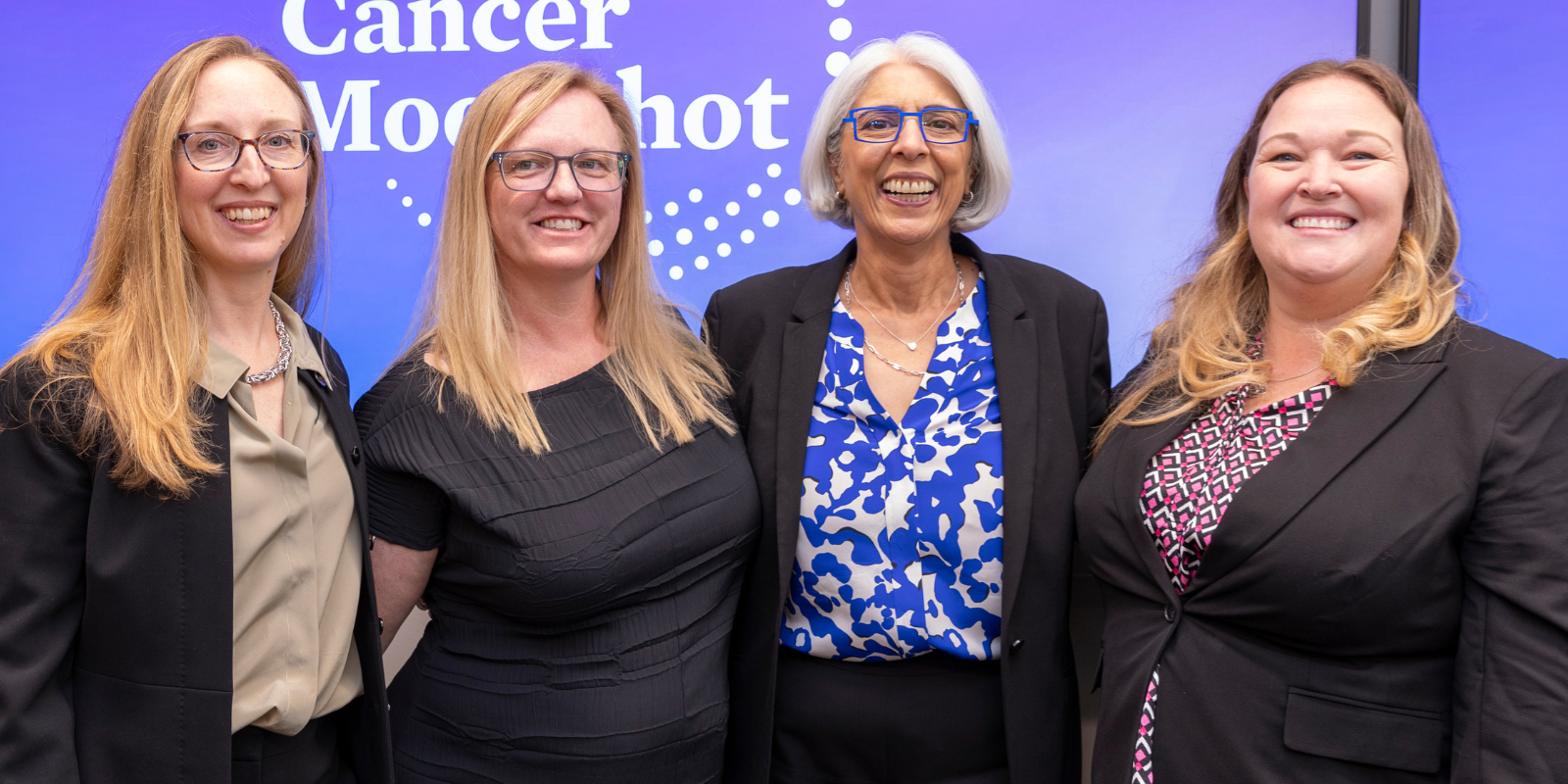Where do we stand with breast cancer, and what are some key trends?
Particularly here in the United States, the numbers of diagnoses have been continuing to climb, in part because we have seen an increase in the obesity epidemic in the country. Obesity is tied to inflammation, which is tied to the increase of several cancers, of which breast cancer is one, particularly in women.
On the flip side of that, there have been tremendous advances in the years that I’ve been doing this job that have impacted the ability to cure breast cancer for many women, and also the ability to prolong the lives of women who get diagnosed with breast cancer when it is beyond what we typically think of as curable, having spread to other parts of the body.
→ Two-Drug Combo Shows Promise as Treatment for Aggressive Form of Breast Cancer
Those advancements come from a combination of things, including improvements in detection and screening as well as raising awareness among women in general. But the other big part of it is the development of novel therapies and drugs that have improved how successful we are at killing off these cancers and making sure they don’t come back. As a medical oncologist, that’s the side of the equation I’ve lived in all of these years.
I’m super-proud that the team at the CU Cancer Center has been involved in the development of many breast cancer drugs that have extended the lives of women in meaningful ways.
Talk about your own research into breast cancer involving young women, particularly in the years after giving birth.
One area my career has been focused on is the subset of breast cancers called HER2-positive. That dovetails with the fact that I have chosen to focus my career on young women’s breast cancer, because younger women get more HER2-positive breast cancers than average-age women.
Drugs that my team and I have helped develop – including one that was made right here in Colorado, tucatinib – have made a big difference in our ability to treat women, including the development of brain metastases, which is one of the devastating consequences of HER2-positive breast cancer. Brain metastases used to be a prognosis of only a few months. Now, I have women who are living for years with brain metastases.
My main area of focus in my research is why young-onset breast cancer has a worse prognosis. Women who are diagnosed with breast cancer under age 45, and especially under age 35, do not fare as well as a woman diagnosed at age 55 or 65. When a young woman gets diagnosed in the early years (up to 5 to 10 years) after her last childbirth, there is a greater likelihood of that cancer not benefiting from current treatments and a worsened survival outlook. We are working to identify treatments that will get at the underlying reasons why postpartum breast cancers behave more aggressively.
→ Turning Off the Breast Cancer Switch: Federal Grant Powers Study of Therapy Resistance
What advice do you have for women, including young women, concerned about breast cancer?
It behooves every woman to understand where they are on the spectrum of breast cancer risk and what they should be doing to advocate for themselves.
For one thing, women need to understand what has happened to the people in their family on both sides of their parental lineage. Get the most information you can in terms of who has had cancer, what type of cancer, and what ages did it come on. Not just breast cancer, but ovarian cancer, colon cancer, or less common cancers. Then talk to your primary care provider to see if you should see someone about potentially having a higher-than-average cancer risk, or start screening earlier, or get genetic testing. There are nine genes associated with young-onset breast cancer, and those genes often offer opportunities for intervention or prevention strategies.
→ Tablets Show Promise as an Alternative to Chemotherapy in CU Cancer Center Member’s Breast Cancer Study
For women who are at average breast cancer risk, I definitely recommend that they start getting their screening mammograms at the age of 40 and do them every year. It’s also important that they go to the same place for screening every year if they can. Mammograms need to be compared to each other, so if it’s all in one place, they have all that information.
It’s also important for women to know that there are gradations of density of breast tissue. Density is indicated on mammogram reports. The most dense type of breast tissue is usually called either markedly dense or extremely dense, and those are the women who should talk to their primary care providers about whether they should be doing a higher level of screening.
What about ways to reduce the risk of breast cancer?
The best breast cancer I’ve ever treated is the one a woman didn’t get. That sounds cheeky, and yet it’s important for women to realize breast cancer has prevention options. There are some lifestyle things women can do that will reduce the risk of getting breast cancer. Some factors we can’t control, but we can control how we eat, whether we exercise, and whether we drink a lot of alcohol. Those are probably the three biggest things that women can factor into their lives to mitigate their risk.
Eating healthfully could mean something like the Mediterranean diet, which is pretty easy to read about on the internet these days. It’s a simple, common-sense diet based on a rainbow of fruits and vegetables, lean protein, and healthy fats. It does not require a lot of fancy shopping or ordering things from a website.
In the United States, in particular, there is a lot of opportunity to eat processed foods that have been shown to be not good for us, and that has to be counterbalanced with thoughtful diet.
→ Read more stories about breast cancer research and patients at the CU Cancer Center.
I could go on for hours about the importance of exercise. It is not something our culture prioritizes for young women, particularly once they are mothers, and particularly if they also are trying to work. Yet, no matter what, women need to figure out a way to get themselves at least three to four good hours of exercise a week, preferably more. It doesn’t have to be fancy – a walk, a run, dancing around the living room – it all counts. It reduces risk of breast cancer and many other diseases as well.
Alcohol has been linked to developing cancer, including breast cancer. I think it’s great that the younger generation appears to be steering themselves away from the use of alcohol in comparison to what my generation did in their 20s and 30s. But all of us could benefit from limiting our drinking if we drink at all.





